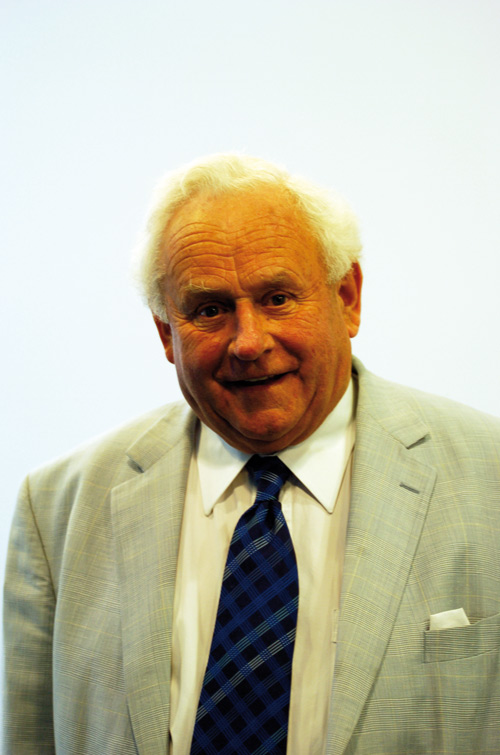
The future continues to look bright for free range eggs. Free range could account for as much as 50 per cent of production by the end of this year and the EU ban on conventional cages, which is due to come into effect in January 2012, is likely to drive the switch to free range still further. But BFREPA chairman John Retson says the industry needs to ensure that expansion of free range production is carefully controlled to avoid creating a temporary imbalance in supply and demand.
John says that evidence indicates the UK laying flock could amount to 14 million free range birds at the moment. About 10 million of those – more than 70 per cent of them – belong to BFREPA members. The indications are that the overall figure could increase to 15 million by the end of the year. The decision by Lion and Freedom Food to increase the permitted external stocking density from 1,000 to 2,000 birds per hectare has opened the way for existing producers to expand production. There have also been many new entrants into the free range industry over the last couple of years.
John Retson believes that the industry needs to be careful to prevent the growth in production outstripping the growth in demand. "We do not want to reach the point where there are too many eggs for the market," he said.
"We all have to be very mindful. The figures we see from our own membership suggest a fantastic future for free range eggs, but we must not move ahead too fast. People don’t want to be putting bricks and mortar down without knowing that there is a market for their eggs.

They need to speak to us and to packers before going ahead and putting in new production."
There clearly has been a surge in people interested in becoming free range egg producers, but major packers are monitoring the market carefully to ensure they do not take on more egg production than they can sell. Noble’s have instigated a survey to find out whether existing producers are intending to expand production and have warned that there is no guarantee that the company could take the extra production – encouraging producers to talk to the company before installing new units.
Stonegate has warned that the time is close when the doors could be closed to new entrants and John Campbell of Glenrath Farms says he has been turning away new producers since the start of the year. "We could end up with a premium product becoming a value product," said John Campbell, who has been warning for some time that the industry needs to avoid reaching a position of oversupply. "If that happens then the margins are going to be wafer thin."

He said, "I have been in this industry for 60 years. During the Sixties there were grants to put in cages and as a result the market was oversubscribed. There were too many eggs on the market and the market became depressed for a long time." He said he did not want to see history repeat itself. He did not want to see free range egg prices depressed as a result of oversupply in the market.
Richard Kempsey of Stonegate raised his concerns about the market during a workshop at the Pig and Poultry Fair this month. The workshop was designed for people interested in going into egg production. He presented his talk on both days of the fair and the audience was packed on each occasion. However, he warned that potential producers had to make sure they had a market before going ahead with investment.
"Although we have got steadily increasing demand for free range eggs, particularly from the processing market, there is huge interest – and I think that is highlighted by the number of people in this room - and there has been a huge number of enquiries over the last two years. We have a stream of producers who are now locked into our schedules for the next two years. We are getting close to the point when we say that is it, the stable door is closed and we don’t need any new production going forward."
Martin Troop of Noble’s has confirmed to the Ranger that the company has written to its producers asking them to complete a questionnaire. The questionnaire seeks to ascertain whether producers are planning to increase production now that the limit on external stocking density has been increased. He said it was a sensible thing to do because Noble’s wanted to ensure a stable industry that provided people with a good return. He said that eggs were required and expansion would continue – although not necessarily at the rate that producers were wishing to expand.
Martin said there had been a massive increase in the number of people interested in egg production. If all of the interest was converted into actual production there would be too much. He said Noble’s first preference was to fulfil increased demand through existing producers expanding their production.
The questionnaire would help the company to plan ahead better, although he said producers should speak to packers before investing to ensure that there was a market for their eggs. Noble’s could not guarantee to take all the additional production.
Martin Flegg at Fidays said the company was still taking on producers. Producers did tend to check with the company before going ahead with investment. There was a lot of interest, although it would not all result in new production.
Stewart Elliott at Eggsell reiterated the warning issued by others in the industry that people should ensure there was a contract for their eggs before making any investment. "That gives the packers and ourselves the room to say yes or no. You will still find expansion in some areas of the country. In some other areas you may find that it comes to a halt," said Stewart.
At the Pig and Poultry Fair this month, there was a steady stream of new producers signing up for membership of BFREPA. The market for free range eggs has grown substantially over recent years and John Retson says the future will continue to be bright for free range producers as long as the industry takes care to control the rate of expansion and avoids producing more eggs than the market can absorb.
